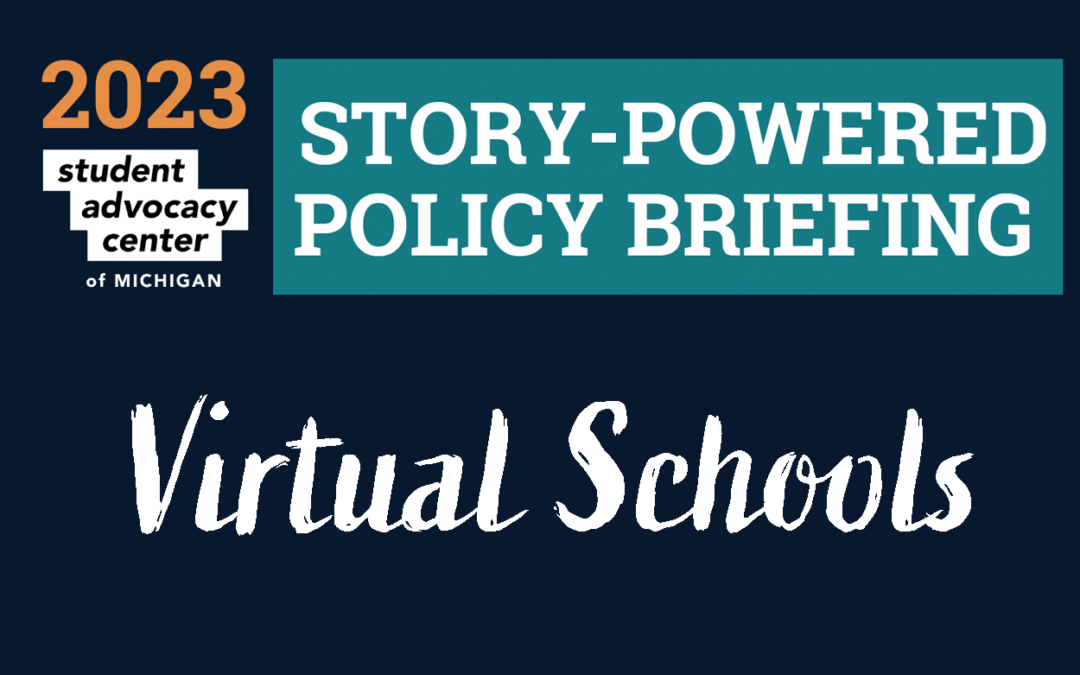“When “Monique’s” grandson was forced into a virtual school, she had no idea how he would finish 5th grade. She felt lost and unsure what to do. Unfortunately, these kinds of stories have become far too common. The COVID-19 Pandemic made virtual learning widespread, accelerating a trend SAC started noticing more than nine years ago. Since the return to in-person learning, we are seeing increases in students being unjustly placed or counseled into virtual schools for disciplinary, behavioral, and academic reasons.
According to the National Education Policy Center (2023), “Full-time virtual schools as they are currently designed do not show promise … the overall performance of full-time virtual schools remains poor with little substantive improvement evident over time.”
To better understand the impact of this issue on students and their families, we gathered the perspectives of several who have received services from SAC. In the attached policy briefing, you will find four stories demonstrating the unjust placement process into virtual school, as well as the challenges experienced while enrolled. One parent said: “I am very dissatisfied with virtual, but I know I have no other option […] Instead of getting to the why of their behavior, they are just sending them to virtual” – underscoring the need for change.
Virtual placements vary widely in the level of support and amount of resources provided. The lack of live teacher instruction and peer interaction poses challenges to students’ academic, social, and emotional well-being. Students in these settings – too often students with disabilities and students of color – are often expected to complete work on their own with little to no teacher assistance.
Additionally, you will find our asks for local districts, the Michigan Department of Education, and state legislature – shaped by extensive research and the voices of those impacted.
We encourage you to read and share this story-powered policy briefing.
